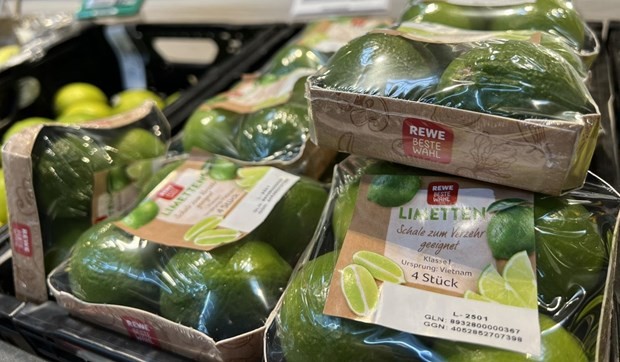
Taking full advantage of incentives for farm produce from the EVFTA in the new context
Latest
 |
| Last year, Vietnam's exports to the EU reached 46.8 billion USD, resulting in a trade surplus of 31.4 billion USD. |
Taking full advantage of incentives for farm produce from the EU-Vietnam Free Trade Agreement (EVFTA) in the new context was the theme of a seminar held in both in-person and online formats by the Ministry of Industry and Trade (MoIT) in Hanoi on September 8.
Speaking at the event, Dinh Sy Minh Lang from the MoIT’s Department of European-American Markets said statistics from the General Department of Vietnam Customs and surveys conducted by the Vietnam Chamber of Commerce and Industry (VCCI) showed that the rate of businesses that have a relatively good or clear understanding of the EVFTA is significantly higher than other FTAs.
Nearly 41% of firms reported reaping specific benefits from the EVFTA, a notable increase from around 25% in 2020. In addition, Vietnam's exports to the EU have shown consistent growth, with 14.2% and 16.7 increases in 2021 and 2022, respectively.
Last year, Vietnam's exports to the EU reached 46.8 billion USD, resulting in a trade surplus of 31.4 billion USD. From the beginning of this year until July 31, Vietnam earned 25 billion USD from exports to the bloc.
Lang said the Vietnamese agricultural products entering the EU have not achieved the expected growth due to challenges posed by non-tariff measures such as Sanitary and Phytosanitary (SPS) regulations and Technical Barriers to Trade (TBT) when exporting to the EU.
Most recently, the European Parliament (EP) has passed a new law banning the import of goods believed to be linked to deforestation activities in an effort to promote global climate change mitigation efforts.
Accordingly, the new law will apply to products like coffee, cocoa, soybeans, sawn wood, palm oil, livestock meat, rubber, and derivatives from various countries around the world. Additionally, any products in these categories found to be associated with deforestation will also be prohibited from entering the EU.
At the seminar, delegates discussed issues regarding business environment risks in the European market and provided guidance on complying with international standards to improve internal processes to meet export requirements.

























